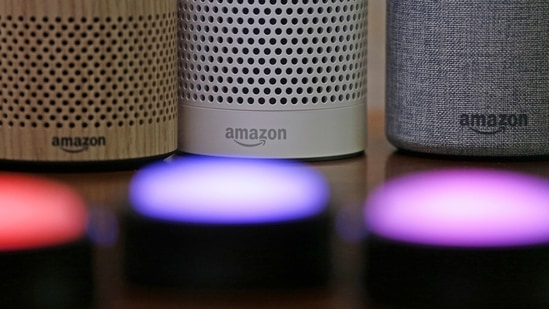Voice assistants harmful for your child's development, claims study: Report
Anmol Arora, the co-author of the research published in the journal Archives of Disease in Childhood, said the multiple impacts on the children include inappropriate responses, impeding social development and hindering learning opportunities.
Voice-controlled assistants have become an important part of our lives. Be it Amazon Echo-powered Alexa, Apple's Siri or Google Home, these voice-activated assistants are used for varied purposes from setting alarm, reminders for a meeting or even go to the loo.

But now, a latest research has revealed that such voice-assistants may have a long-term impact on the social and cognitive development of the children, The Guardian reported.
Anmol Arora, the co-author of the research published in the journal Archives of Disease in Childhood, said the multiple impacts on the children include inappropriate responses, impeding social development and hindering learning opportunities.
Arora added that the key concern is that the children attribute human traits and behaviour to these devices which are a list of trained words and sounds joined together to make sentences.
These children ‘anthropomorphise’ and emulate these devices and even copy their failure to alter their tone, volume or intonation. The machines have a lack of automatic expectation for the children to use words like ‘please’ or ‘thank you’, the Guardian report added.
Arora said these voice-activated assistants are also limited when it comes to questions they answer. These children will learn very narrow terms of questions and usually in the form of demand.
The research report also point outs that a young child might not be able to pronounce certain words properly and there are chances that their words might be misinterpreted. These devices don't understand what they say, as they are simply regurgitating some information in response to a query.
According to report, a researcher published a study showing how smartphones and tablets are rewiring children with long-term effects. Dr Adam Miklosi called the research important and called for more measures to get companies to take the issue seriously.
He even hit out at the makers, accusing them of not caring about human interaction or impact on the children's devices while developing such ‘primitive’ devices. He explained that the makers know how the adults use these devices but the usage is different in case of children.
Dr Caroline Fitzpatrick, another researcher, said she thought there was little cause of concern. She said that it is true that children need rich context and cues to learn and develop vocabulary which they can't get through interactions with technology.
Fitzpatrick, who is the Canada Research Chair in Digital Media Use by Children and Its Implications for Promoting Togetherness: An Ecosystemic Approach, said as long as the parents keep to the recommended limits for the children and they are getting a healthy amount of interaction from their caregivers, there shouldn't be a cause of concern.






